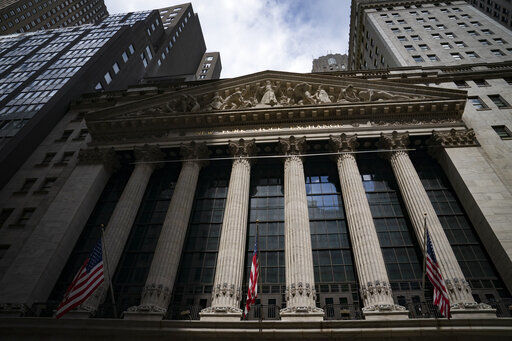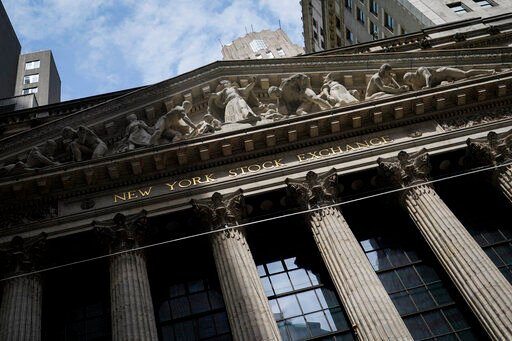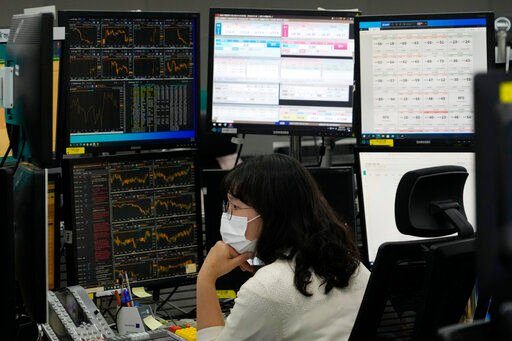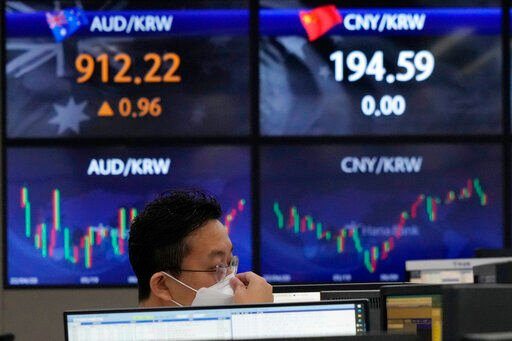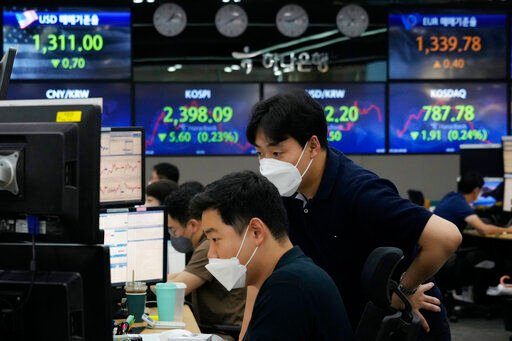Big retailers and technology companies led stocks lower on Wall Street Tuesday after Walmart warned that inflation is hurting American consumers’ spending power.
The sell-off comes ahead of the Federal Reserve’s latest interest rate policy statement on Wednesday, when economists expect the central bank to announce another sharp rate hike as it ratchets up its fight against surging inflation.
The S&P 500 fell 1.2%, wiping out nearly half of the benchmark index’s gains from last week. The Dow Jones Industrial Average dropped 0.7% and the tech-heavy Nasdaq Composite closed 1.9% lower.
Walmart slumped 7.6% after the retail giant cut its profit outlook for the second quarter and the full year late Tuesday, saying that rising prices for food and gas are forcing shoppers to cut back on more profitable discretionary items, particularly clothing.
The retailer’s profit warning in the middle of the quarter is rare and raised worries about how the highest inflation in 40 years is affecting the entire retail sector.
Stocks of other major chains also fell. Target dropped 3.6%, Macy’s slid 7.2% and Kohl’s fell 9.1%.
Investors have remained deeply concerned about inflation’s impact on company profits and how it will affect U.S. consumers. While Americans’ finances are relatively strong thanks to savings built up during the pandemic, those nest eggs are being spent on high gas and food prices.
“The client base of Walmart is obviously in probably the lower quarter or maybe lower third of the income brackets,” said Randy Frederick, managing director of trading & derivatives at Charles Schwab. “Those aren’t people that drive most of the discretionary spending anyway, but they are people who are most vulnerable to the inflation pressures.”
Stock indexes were in the red from the get-go Tuesday as traders reacted to Walmart’s announcement.
The S&P 500 fell 45.79 points to 3,921.05. The Dow lost 228.50 points to end at 31,761.54. The Nasdaq fell 220.09 points to 11,562.57.
The major indexes are coming off solid gains last week fueled by mostly better-than-expected reports on corporate profits. Falling yields in the bond market also helped, easing the pressure on stocks after expectations for rate hikes by the Federal Reserve propelled yields higher much of this year.
The central bank is expected to announce a rate hike of up to three-quarters of a percentage point on Wednesday, triple the usual amount. The central bank is waging an aggressive campaign to stem four-decade high inflation. The expected hike would put the Fed’s benchmark rate in a range of 2.25% to 2.5%, the highest since 2018.
Bond yields were mixed Tuesday. The two-year Treasury yield, which tends to move with expectations for the Fed, rose to 3.04% from 3.02% late Monday. The 10-year yield, which influences mortgage rates, fell to 2.80% from 2.82%.
Technology stocks, retailers and communication companies were among the biggest drags on the benchmark S&P 500 index. Microsoft fell 2.7%, Amazon slid 5.2% and Facebook owner Meta Platforms dropped 4.5%.
The losses easily outweighed gains by health care and utilities stocks. Small company stocks also fell. The Russell 2000 gave up 12.53 points, or 0.7%, to end at 1,805.25.
Investors eyed the latest batch of corporate earnings reports Tuesday.
Shares of automaker General Motors fell 3.4% after the company said its second-quarter profit fell 40% from a year ago, as computer chip and parts shortages hobbled factory output and drove the company’s U.S. sales down more than 15%.
The Detroit automaker earned $1.67 billion from April through June, well below the $2.79 billion it made a year earlier. GM couldn’t deliver 95,000 vehicles during the quarter because it lacked parts.
Shopify slumped 14.1% after the Canadian e-commerce company said it is cutting 10% of its staff, or about 1,000 employees, as it reckons with an unexpected sales downturn after pandemic-fueled growth.
Technology bellwethers Meta, Apple and Amazon report quarterly results later in the week.
“By the end of this week we’ll have a lot of big tech earnings and we’ll have a better feel for how that whole sector is going to go,” Frederick said. “People are maybe hedging a little bit ahead of that big onslaught of tech earnings that we’re going to get this week, plus obviously, there’s concern about the Fed tomorrow.”


